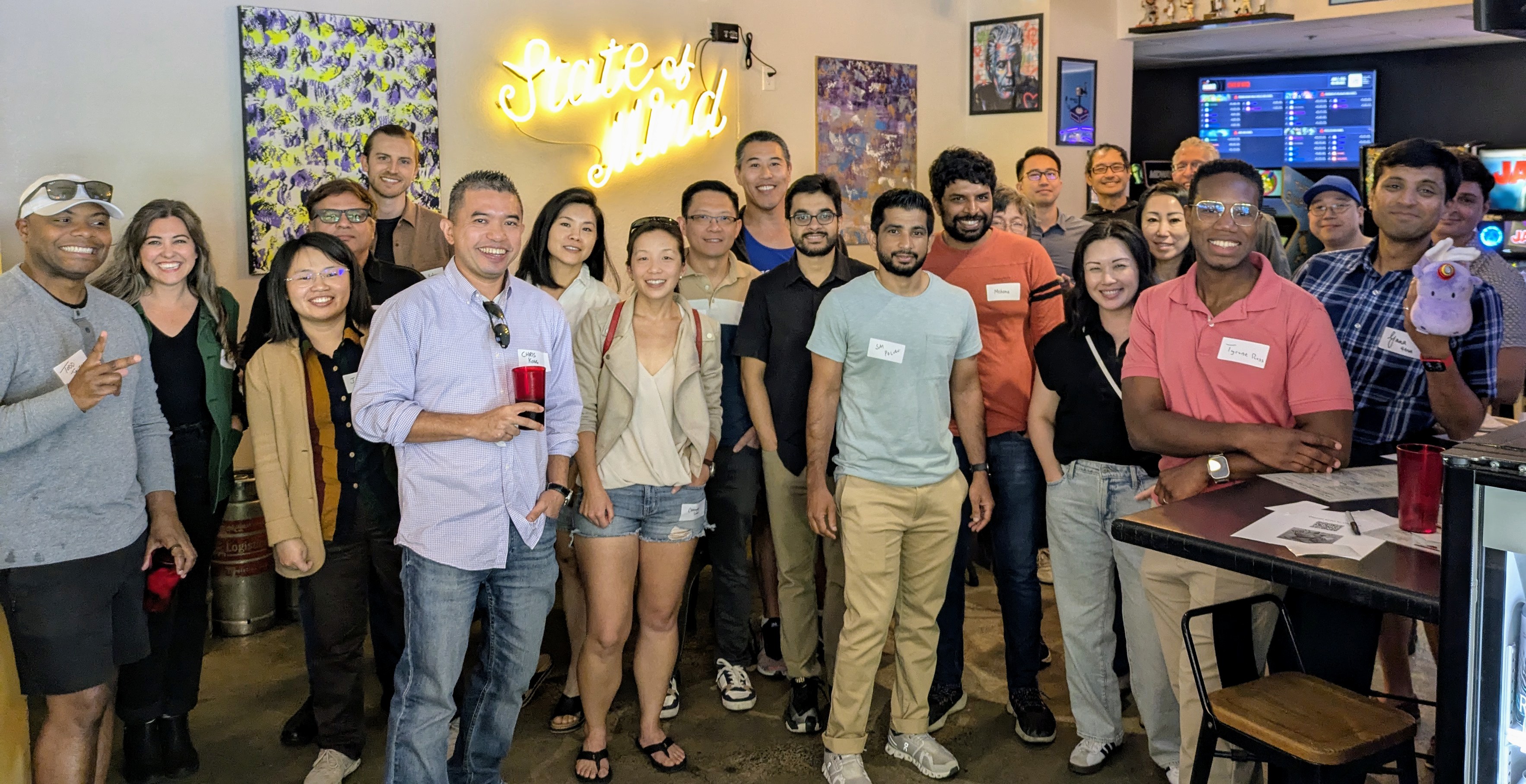Kevin Systrom Investments: How The Instagram Co-Founder Evaluates Consumer Products That Actually Win
.png)
Brian Nichols is the co-founder of Angel Squad, a community where you’ll learn how to angel invest and get a chance to invest as little as $1k into Hustle Fund's top performing early-stage startups.
Kevin Systrom built Instagram from a side project to a $1 billion acquisition by Facebook in just two years. Now he's applying those product instincts to early-stage investing. And his approach reveals something important about what actually makes consumer products successful.
I've been tracking Kevin Systrom investments to understand his framework. What stands out isn't just his focus on consumer products but specifically how he evaluates product-market fit, growth mechanics, and founder product intuition.
Who Is Kevin Systrom?
Kevin co-founded Instagram with Mike Krieger in 2010. Before that, he worked at Google and Nextstop. Instagram started as Burbn, a location-based check-in app that wasn't working. Kevin and Mike stripped away everything except photo sharing with filters.
That pivot decision, focusing on one feature that people actually loved, defined Instagram's success. Facebook acquired Instagram for $1 billion in 2012 when it had 30 million users. Today it has over 2 billion users.
Kevin left Instagram in 2018. Now he's building new products and angel investing in early-stage consumer companies.
What's Kevin's Investment Philosophy?
Kevin focuses on a few key areas:
1. Consumer products with clear product-market fit: He's not interested in ideas that might work someday. He wants to see evidence that people already love the product.
2. Products that tap into human behavior, not create new behavior: Instagram succeeded because people already loved taking photos. It just made photo sharing easier and more beautiful. Kevin looks for similar dynamics.
3. Founder teams with strong product instincts: Kevin values founders who can ship fast, learn from users, and iterate based on real feedback. Not founders who spend months planning perfect launches.
How Does Kevin Evaluate Products?
Here are the patterns in Kevin Systrom investments:
He looks for organic growth, not paid growth: If your product requires huge marketing spend to acquire users, Kevin probably isn't interested. He wants products that spread through word of mouth because people genuinely love using them.
This makes sense given Instagram's early growth. They spent almost nothing on user acquisition. The product was just so good that people told their friends.
He values simplicity over feature bloat: Instagram's genius was removing features, not adding them. Kevin looks for founders who understand that constraint breeds creativity.
He wants to see strong retention metrics: Anyone can acquire users once. The question is: do people keep using your product? Kevin understands that retention is the real signal of product-market fit.
He invests in products he personally uses: Kevin doesn't invest in products he doesn't understand or use himself. His portfolio reflects his own consumer behavior.

What Can We Learn From Specific Kevin Systrom Investments?
Let's look at some actual deals:
Sandbox VR: This is a location-based VR experience company. Kevin invested because he saw people genuinely loving the product. They'd play once and immediately book return visits with friends.
The lesson? Products that create memorable experiences people want to repeat (and share) can build real businesses even in challenging categories like location-based entertainment.
Superhuman: Kevin was an early investor in this email client. Why? Because he personally experienced the product-market fit. People who tried Superhuman became obsessive users.
The lesson? Sometimes the best investments are in products solving problems you personally experience. If you can't imagine switching back to your old solution, that's a signal.
Clubhouse: Kevin invested early in Clubhouse when it was still tiny. He saw organic growth and strong engagement metrics. People were spending hours in rooms having conversations.
The lesson? Even if a product eventually struggles (as Clubhouse did), early signals of product-market fit are worth paying attention to. The execution challenges came later.

What Makes Kevin Different From Other Investors?
He's built one of the most successful consumer products ever: Most investors have never created a product that billions of people use. Kevin has. That gives him credibility and pattern recognition others don't have.
He understands growth mechanics deeply: Kevin knows the difference between vanity metrics and real engagement. He can spot unsustainable growth from a mile away.
He's not afraid to pass on hot deals: Kevin doesn't invest just because everyone else is. If he doesn't see organic product-market fit, he passes. Even if it means missing deals.
The Instagram Lessons Kevin Applies To Investing
Here are the specific lessons from building Instagram that Kevin applies to evaluating investments:
Focus is everything: Instagram succeeded by doing one thing really well (photo sharing) instead of many things poorly (Burbn's original feature set). Kevin looks for that same focus in products he backs.
Timing matters: Instagram launched right as iPhone cameras and mobile internet were getting good enough for photo sharing to work well. Kevin pays attention to technical and cultural timing.
Design creates differentiation: Instagram wasn't the first photo-sharing app. But it was the most beautiful and easiest to use. Kevin values founders who understand that design isn't just aesthetics; it's how the product works.
Network effects are everything in social: Instagram's value came from everyone being on it. Kevin understands social mechanics better than almost anyone.
How Should Early-Stage Investors Apply Kevin's Approach?
Here are the tactical takeaways:
Use the product yourself: If you wouldn't personally use it, don't invest in it. You can't evaluate consumer products from the outside.
Look for organic growth signals: Is the product spreading through word of mouth? Are people paying without marketing spend? Those are much better signals than paid user acquisition.
Focus on retention, not acquisition: Anyone can buy users. The question is whether they stick around. Look at day 1, day 7, and day 30 retention. Those metrics tell the real story.
Invest in founders who can ship fast: Consumer products require constant iteration. Founders who take six months to ship updates will lose to founders who ship weekly.
Pay attention to qualitative feedback: Are users genuinely excited? Do they describe the product to friends without prompting? That enthusiasm matters more than most metrics.
What About Kevin's Investment Process?
Kevin is known for being a hands-on advisor to companies he invests in. He doesn't just write checks. He helps founders think through product strategy, design decisions, and growth mechanics.
This creates a selection bias in his deal flow. Founders want Kevin's advice, not just his money. That means he sees better deals and can be more selective.
For angel investors, the lesson is clear: if you want access to better deals, become genuinely helpful to founders. That means developing specific expertise you can share.
The Reality Check
Not every Kevin Systrom investment has worked out. Clubhouse peaked early and struggled to maintain momentum. Some of his other bets are still too early to judge.
But even the companies that haven't succeeded show Kevin's consistent evaluation framework: strong early product-market fit, organic growth, and founders with clear product vision.
The Bottom Line For Consumer Investors
Kevin's approach to investing reflects his experience building Instagram. He knows what early product-market fit looks like. He knows which metrics predict long-term success. And he knows that great consumer products feel magical from the first use.
For early-stage investors focused on consumer products, Kevin's framework is worth studying. The specific lessons from Instagram (focus, timing, design, network effects) apply to evaluating any consumer investment.
And if you're serious about getting better at evaluating consumer products, connecting with other investors who've built products themselves helps sharpen your instincts. Angel Squad brings together operators-turned-angels who understand the difference between a cool demo and a product people will actually use every day.
Kevin Systrom investments reveal that the best consumer products don't need to be explained. They need to be experienced. And the best consumer investors are the ones who've built products themselves and can spot the difference.
That's the real edge in consumer investing.













